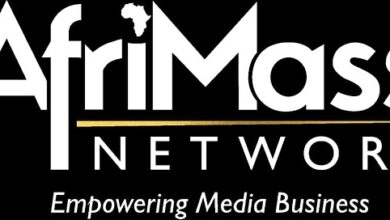Featured
EXPLOITATION BY STACY M AMEWOYI

Children were asked to identify each flavor of drinks that were of different colors of the rainbow. The interesting part that exposes built in perception was when they were asked to guess the flavors based on color.
The kids made predictions like “the red one is cherry or strawberry, the colored drink was orange, the green was apple and some said broccoli. One kid went further to say, she bet it tasted bitter.
This according to her understanding, is associated with greens which are healthy and health means bitterness. These children had no idea all the drinks were the same and that they were just colored.
Surprisingly, even when they tasted it, they still stuck with their initial predictions. This really goes to show that, through repetitive conditioning, our brains make associations that ultimate shape how we feel concerning anything; especially food and toys when it comes to kids.
With that being said, its easy to understand why the children gravitated towards the food covered in McDonald’s wrappers. The truth is that, big companies like fast food chains and toy companies have worked with psychologists to better adverts food and products to consumers.
I firmly believe that, there is a direct correlation between how brands are marketed and the influence it has on people in the case of children. I would like to also add that kids easily get attached to brands that they are exposed to.
Therefore, even if a brand has better products, they will still prefer the one they rae used to. I guess you can say there is safety in familiarity. Everything I have said here is partly based on what I have experienced personally and what I have observed over time.
To exploit someone is to take unfair advantage of them. It is to use another person’s vulnerability for one’s own benefit. Of course, benefitting from another’s vulnerability is not always morally wrong.
We do not condemn a chess player for exploiting a weakness in his opponent’s defense, for instance. But some forms of advantage-taking do seem to be clearly wrong, and it is this normative sense of exploitation that is of primary interest to moral and political philosophers.
Exploitation can be transactional or structural. In the former case, the unfairness is a property of a discrete transaction between two or more individuals. A sweatshop that pays low wages, for example, or a pharmaceutical research firm that tests drugs on poor subjects in the developing world, might be said to exploit others in this sense.
But exploitation can also be structural a property of institutions or systems in which the “rules of the game” unfairly benefit one group of people to the detriment of another. As we will see below, Karl Marx believed that the economic and political institutions of capitalism were exploitative in this sense.
And some contemporary feminists have argued that the institution of traditional marriage is exploitative insofar as it preys upon and reinforces pernicious forms of inequality between men and women.
Exploitation can also be harmful or mutually beneficial. Harmful exploitation involves an interaction that leaves the victim worse off than she was, and then she was entitled to be.
The sort of exploitation involved in coercive sex trafficking, for instance, is harmful in this sense. But as we will see below, not all exploitation is harmful. Exploitation can also be mutually beneficial, where both parties walk away better off than they were ex ante.
What makes such mutually beneficial interactions nevertheless exploitative is that they are, in some way, unfair. It is relatively easy to come up with intuitively compelling cases of unfair, exploitative behavior.
Providing a philosophical analysis to support and develop those intuitions, however, has proven more difficult. The most obvious difficulty is specifying the conditions under which a transaction or institution may be said to be unfair.
Does the unfairness involved in exploitation necessarily involve some kind of harm to its victim? Or a violation of her moral rights? Is the unfairness involved in exploitation a matter of procedure, substance, or both?
And how, if at all, are facts about the history of the agents involved or the background conditions against which they operate relevant to assessing charges of exploitation?
John B. Watson exacted his terrible idea of attempting to prove that children can be classically conditioned to react a certain way. He referenced the condition of dogs and the logic behind his theory.
He tried to trigger a fearful reaction out of little Albert towards mice. He made a loud sound which startled the poor child. After a couple times of reinforcing that action whenever Albert decided to reach out and play with the mouse, he would react with fear because he has been conditioned to identify the mouse with fear and discomfort.
This was extremely unethical because it was a toddler, and his money probably didn’t know about this. Also, the video mentioned that he never reversed the state he put the child in so now Albert is sacred for life.
The idea of experimenting on kids, especially babies, gives me creeps. The second one which I thought was very unethical was the “Monster study”. Mainly because, I believe children aren’t qualified to be test subjects.
To me, they are too vulnerable and innocent. Just because a parent consented to something doesn’t mean the children wanted that, I respect how young they are. With this study Wendell Johnson wanted to see how positive and negative feedback would affect a child’s ability to learn a new language.
I wanted to say that the design of the experiment did have the right format to even orchestrate an experiment that could prove or disprove his threat. There wasn’t a control group and the way they went about it wasn’t effective.
Thus, they basically encourage half of the kids to speak more and that their stuttering wasn’t an issue, giving them hope that it will go always. And they discouraged the other half and talked down on their stuttering, warning them not to speak unless they are going to do it right.
As expected, the ones who were encouraged were confident and the other half had developed a slow self-confidence and a low self-esteem. This isn’t ethical because even though it wasn’t as extreme as compared to others, it still damaged the children both mentally and emotionally.
In as much exploitation could be beneficial to both parties, it is more gravitational when it comes to work. Working in firms where employers believe without them you can not survive is something else.
The Republican coronavirus bill is about as Burring as legislation can be; exposing underlying structure of power in Americans as clearly as Burr’s stock trades. In the national crisis, it is just as morally repulsive.
Take a look at how big corporations are treating their hourly workers in the pandemic and there is more Burring. Walmart, the largest employer in America, gives his employees no paid sick leave.
They limit their five hundred thousand part-time workers to forty-eight hours paid time off per year. On the contrary, eighty-eight percent of Walmart employees report coming to work sometimes sick.
None of the giants of fast-food industry, the McDonalds, Burger King, Pizza Hut, Duncan Donuts, Wendy’s, Taco Bell, or Subway gives their workers paid sick leave either.
One of the richest corporations in the world, Amazon, is offering unpaid time off for workers who are sick and just two weeks paid leave for workers who tested positive for the virus.
Meanwhile, it demands its employees to put in mandatory overtime. Over five hundred employees are exempted from the requirement in the House Coronavirus bill.
The bill is to see to it that employers provide paid sick leave but at a time when almost everyone feels burdened and fearful, the use of power and privilege to exploit the weaknesses and vulnerabilities of others is morally intolerable.
Already battered by long shifts and high infection rates, essential workers struggling through the pandemic face another hazard of their employers stealing their wages.
Can you imagine teaching in a school where you get paid with the minimum salary of five hundred Ghana cedis for pre-school; then by the end the month, having tolerated these kids who scream from dawn to dusk and the task of cleaning and feeding them, then your employer show face.
He says, out of your salary, five percent goes into your SSNIT, mandatory amount of one hundred cedis is put aside for you, regardless of you having your own bank account and another percentage gone into utilities. How much will be your take home?
Some businesses pay less than the minimum wage, make employees work off the clock, or refuse to pay overtime rates. In some cases, most employees do not pay their workers at all.
Companies that hire child care workers, gas station clerks, restaurants waiters and security guards are among business that are most likely to be caught cheating on their employees.
I am one of the many people who thinks that, if poor people producing goods for rich people got paid a bit more and the rich paid a little higher, prices for luxury goods, the world will be a bit fairer and just.
There’s strong evidence that there are tragically, high levels of exploitation in terms of violations of basic human rights, and women are especially vulnerable when it comes to sexual harassment.
There is also not much evidence of severe violations such as slavery, that is people being forced to work without pay though there is evidence of workers having to work overtime without pay.
Over the past decade, western based multinationals have almost universally adopted zero-tolerance policies against child labor in their affiliates and supply chains.
There have been improvements, but enforcement is variable and violations are still uncovered. I will say that companies and employers, do not do enough for their employees to protect their basic human rights.
If we are treated equally or fairly, without having to exploit one another, there are chances of the world becoming a better place.




